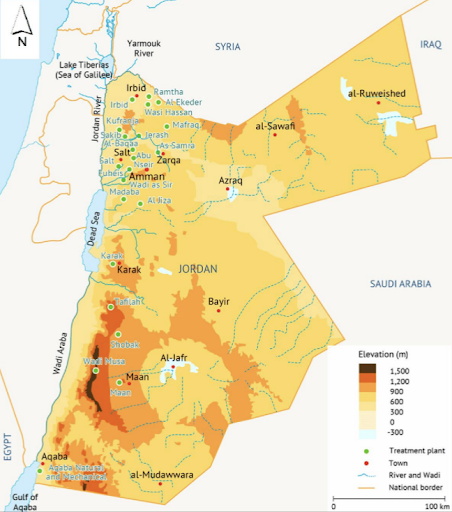
Backstopping Services for SDC’s Engagement in the Water and Sanitation Sector in Jordan - Innovative Sanitation Solutions & Reuse for Arid Regions (ISSRAR) – Sanitation Solutions for Underserved Communities in Jordan
Location
Jordan
project period
Phase 1: April 2022 –June 2022
Phase 2: June 2023 – May 2026
client
Swiss Cooperation Office Amman
Services provided
Partner organisation
The project “lnnovative Sanitation Solutions & Reuse for Arid Regions (ISSRAR) – Sanitation Solutions for Underserved Communities in Jordan” focuses on increasing the efficiency of wastewater treatment systems in Azraq city and on turning wastewater streams into physical and financial resources by supporting integrated, biological wastewater treatment plants (WWTP) and faecal sludge management (FSM) system using treatment wetland technology. This will not only provide additional water but also reduce health risks and protect freshwater aquifers from pollution from raw wastewater (sewage).
The ISSRAR project aims to develop sanitation solutions for underserved communities in Jordan, specifically focusing on the Azraq area. Originally implemented by a BORDA-SEECON consortium, the project faced significant challenges and delays during Phase 1, leading SDC to restructure the initiative.
The project was re-phased with BORDA handling an assessment phase for WWTP site selection, while a new implementer was selected through a competitive tender process for the actual implementation phase.
The project’s core objective is to establish a functional wastewater collection, treatment, and reuse system that benefits local communities and farmers through treated wastewater and faecal sludge for agricultural purposes. Key components include constructing biological WWTP infrastructure using treatment wetland technology, developing sustainable operational and business models, training operators, implementing quality control systems, and creating awareness-raising materials for community engagement. The initiative also emphasizes knowledge transfer and replication potential across Jordan’s rural areas, with policy recommendations for smart sanitation solutions and establishment of a Technical Support Center to promote sector-wide knowledge exchange.
This project is motivated by the existing increased relevance to evolve humanitarian action more sustainable and at the same time look at the potential of the humanitarian development nexus to ensure universal access to water and sanitation as a basic human right and to contribute to the achievement of the SDG 6.
